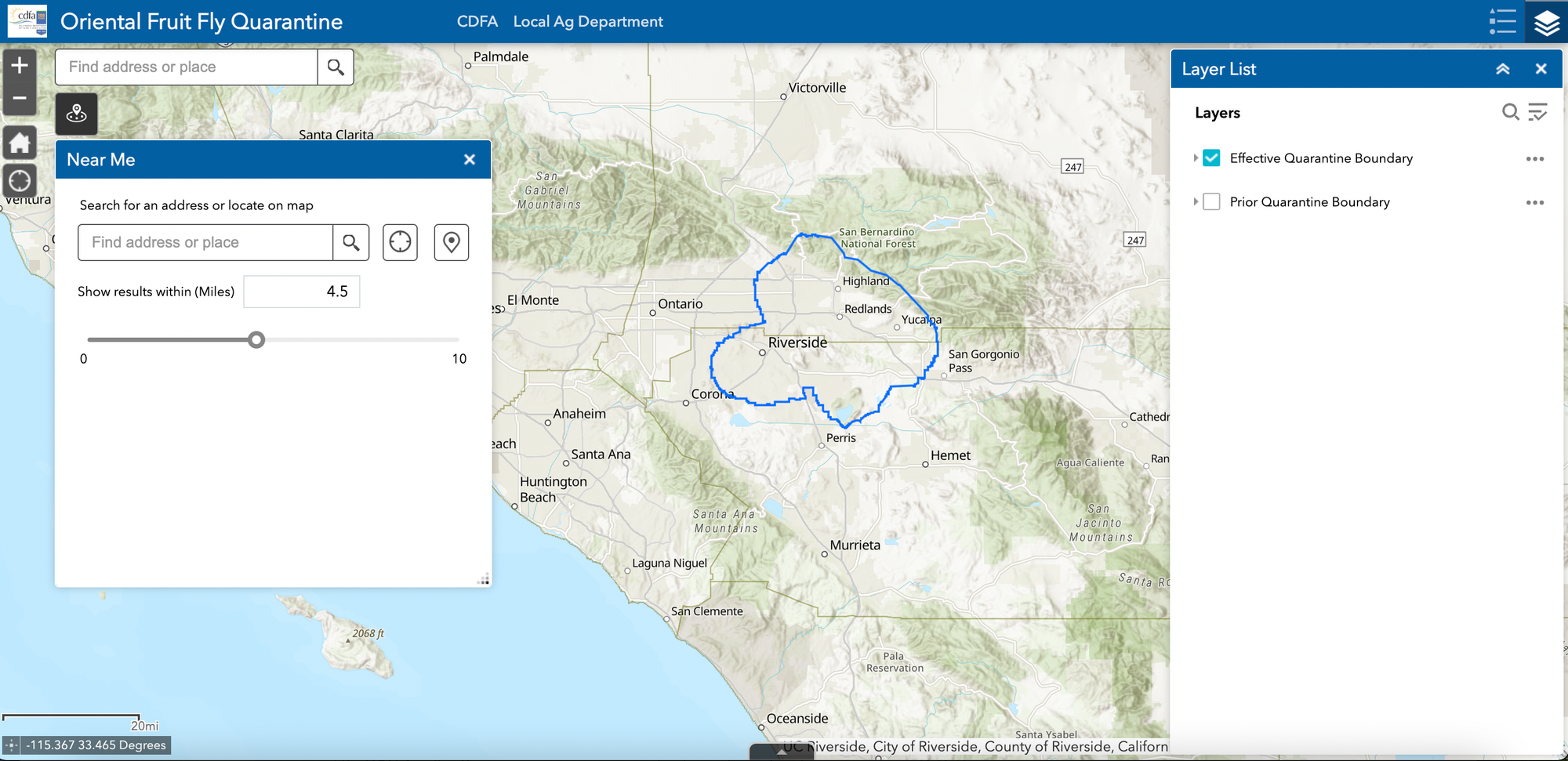Redlands to launch Business License Amnesty Program to boost compliance
Six-month program aims to waive penalties for unlicensed businesses while potentially generating $725,000 in revenue.
What it means for Redlands residents

REDLANDS, Calif. — A quarantine remains in effect in portions of San Bernardino and Riverside counties, including Redlands, after the invasive oriental fruit fly was detected by the California Department of Food and Agriculture (CDFA) in October last year.
Why it matters: The oriental fruit fly causes direct economic loss as fruits become damaged, pesticide use increases and exports become impacted. To prevent the spread, residents living within the quarantine zone should avoid moving homegrown fruits and vegetables from their property.
Details: The San Bernardino and Riverside counties quarantine zone covers 554 square miles as seen on the map published by the CDFA.

The oriental fruit flies are native to Asia, Hawaii and Africa. The insect is known to target over 230 different fruits, vegetables and plants, including citrus fruits, dates, avocados, tomatoes, and peppers.
Crops become damaged when female fruit flies lay eggs inside the fruit or vegetable. The eggs hatch into maggots which tunnel through the flesh of crops, making them inedible.
The most common way the pest spreads is through “hitchhiking” in fruits and vegetables brought back illegally by travelers coming from infested regions or in packages of homegrown produce sent from other countries to California.
“The stakes are huge, help us protect our commercial and backyard gardens from invasive fruit flies, please 'Don’t Pack a Pest' or mail packages carrying unmarked fruit and vegetables to California," said CDFA Secretary Karen Ross in a statement.
Moving Forward: While residents are accustomed to sharing ripe oranges and lemons with neighbors and friends, it is important to keep all produce on the same property it came from.
San Bernardino County officials recommend checking one's garden for signs of flies or maggots in the fruit. Infected crops can be disposed of by double-bagging and placing them in the regular trash. Residents are asked to report any findings to the CDFA at 1-800-491-1899.
The quarantine is expected to remain in effect until June 2024.
For questions about the quarantine, residents can also call the CDFA’s Pest Hotline at 1-800-491-1899. Additional information may also be found at this link.
Sign up for our weekly newsletter